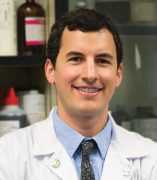Allergies, Author Interviews, C. difficile, Dental Research, Infections / 05.10.2019
Unnecessary Antibiotics For Dental Prophylaxis Cause Significant Adverse Events
MedicalResearch.com Interview with:
Alan E. Gross, PharmD
Clinical Assistant Professor
University of Illinois
Chicago, IL
MedicalResearch.com: What is the background for this study?
Response: Dentists prescribe 10% of all outpatient antibiotics. Most of this prescribing is for infection prophylaxis prior to dental procedures.
Our prior research has found that 80% of prescriptions for dental prophylaxis is unnecessary. Although antibiotic prophylaxis prior to dental procedures is often for a short course (e.g. one time amoxicillin dose), there may be patient harm associated with this.
(more…)



